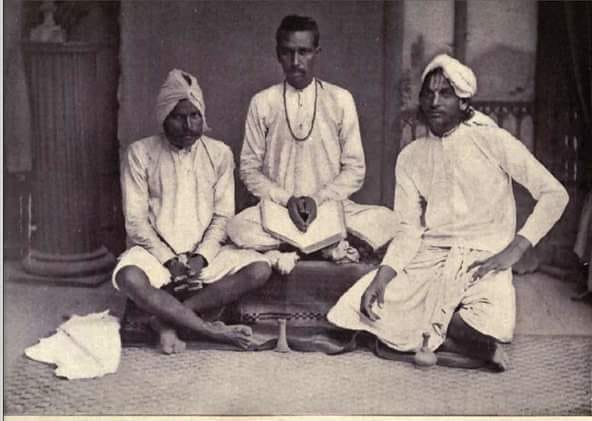|
In the first chapter of this three-part series written by historian Angelo Bissessarsingh we are given an insight into the religious awakenings of Hinduism under indentureship among the Indo-Trinidadians of the 19th century.
CHAPTER 1 Hinduism’s Arrival in the West Indies. Author : Angelo Bissessarsingh. As a historian and erstwhile anthropologist it never ceases to amaze me at how religious and cultural tolerance manifests itself in Trinidad and Tobago. Almost every schoolchild can recite a basic understanding of the annual Hindu festival of Lights, Divali. They know the elements of the triumph of light over darkness, good over evil, bits of the sacred Ramayana and the welcoming of the goddess Lakshmi into the home to ensure a year of prosperity for the family. There are few communities here where in the Hindu calendar month of Kartik (although the earlier month of Ashvin sometimes encompasses the festival) where the firefly lights of tiny clay deyas do not shine forth on the night of the festival, upholding ancient traditions deeply rooted in our ancestry. To fully understand the portent of Divali (Deepaavali as the celebration is known in India) one must take a brief look at the roots of Hinduism in Trinidad and Tobago. In 1845 a group of indentured immigrants arrived from India aboard the Fatel Razack as the first of thousands who would flock hither to found a new society in an alien land. With them to the west came the ancient ways of their motherland and Hinduism had arrived. Initially there was no provision for any cultural or religious freedom since the colonial authorities merely envisioned the presence of the Indians as an easily-replenished source of labour bound to fixed contracts. It was only when the eminent suitability of these people for sugar estate work became apparent then financial and land incentives were offered between 1860 and 1880 which resulted in the formation of a permanent peasant class. It is with this firm establishment that itinerant babajis or pundits began to appear in the villages of their people alongside quaint mandirs with mud walls and carat-thatched roofs. A few of these holy men were real Brahmins but these were in the minority with a large number merely being elevated to piety by having a considerable knowledge of the epics of the Ramayana and Mahabharata. Although most of the indentured immigrants were from agrarian classes were from rural stock and formerly bound by the fetters of the caste system, it was noted in 1887 by J.H Collens (in a rather myopic account) that a widespread knowledge of the epics was apparent and this of course was the local origin of the Ramayana readings and Ramleela plays which have characterized Indo -Trinidadian Hinduism ever since: “It must be acknowledged that the Puranas are a mass of contradiction, extravagance, and idolatry, though couched in highly poetical language. It is, nevertheless, astonishing how familiar the Trinidadian coolies are with them ; even amongst the humble labourers who till our fields there is a considerable knowledge of them, and you may often in the evening, work being done, see and hear a group of coolies crouching down in a semicircle, chanting whole stanzas of the epic poems, Ramayan etc. In the preface of the Ramayan it is stated that he who constantly hears and sings this poem will obtain the highest bliss hereafter, and become as one of the gods.” It is this spiritual awakening which inevitably led to the introduction of Divali and other Hindu festivals to Trinidad. In the next chapter of this series, we will look at how deyas punctuated the darkness in rural Trinidad as Divali emerged as a national phenomenon. Photo :Three babas or pundits in Trinidad circa 1894. The permanent settlement of formerly indentured immigrants paved the way for a cultural and religious expansion of their identities hitherto suppressed by the colonial plantocracy. (Source: Patricia Bissessarsingh, Oct 15, 2022)
0 Comments
Leave a Reply. |
T&T news blogThe intent of this blog is to bring some news from home and other fun items. If you enjoy what you read, please leave us a comment.. Archives
June 2025
Categories
All
|


 RSS Feed
RSS Feed